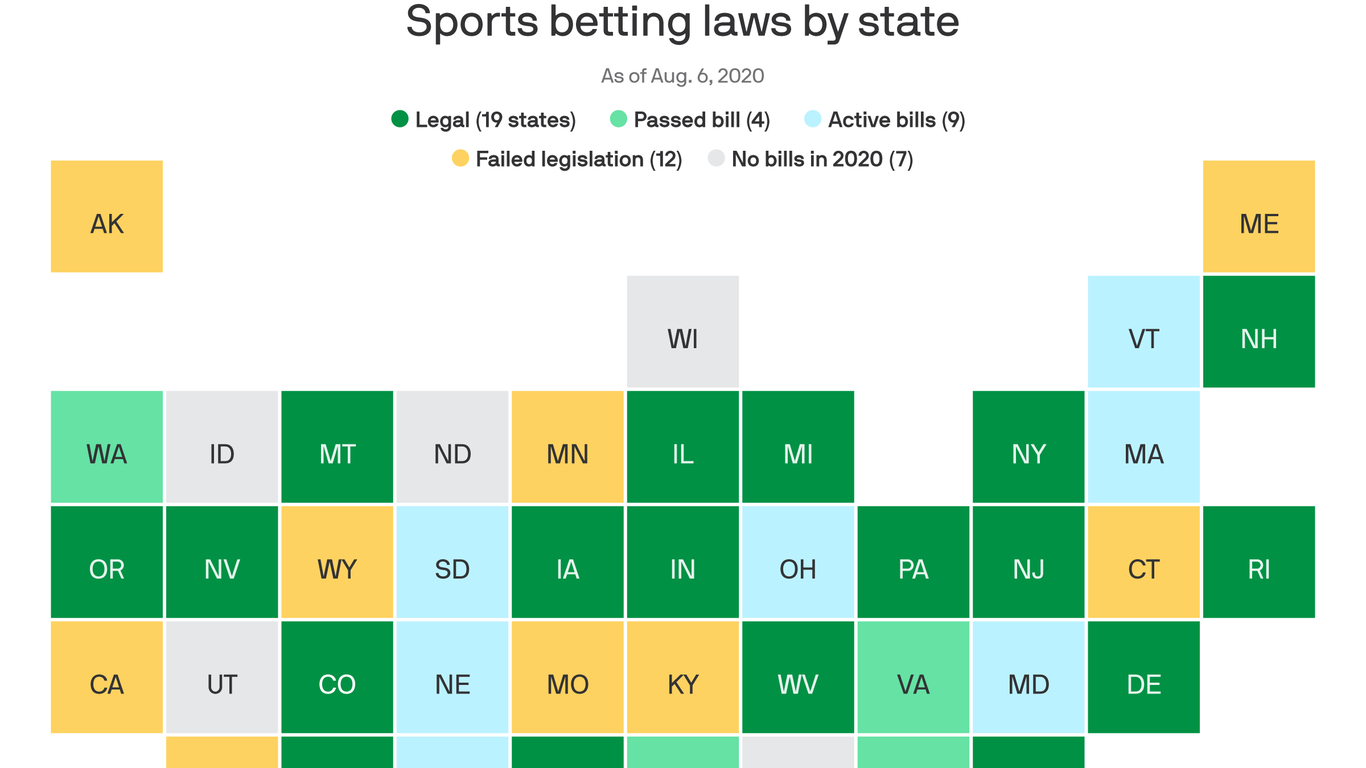Sports Gambling Legal
Thousands of Americans gamble online. But is online gambling legal? We break it down to show you what you can do, what you can't do, and what's still up in the air.
/cdn.vox-cdn.com/uploads/chorus_image/image/59834387/heifetz_gambling_pie_getty_ringer.0.jpg)

by Katherine Butler
updated September 03, 2020 · 2min read
The legality of online gambling is ever-changing. But one thing is constant: it makes a lot of money. Online gambling industry makes an estimated $1 billion dollars annually. This is a huge business, and a lot of people have cashed in on it. But it has led to some ambiguous legal issues, as the legality of online gambling is constantly being challenged.
Legislative Tracker: Sports Betting States can now legalize sports betting if they choose after the US Supreme Court struck down the federal ban in 2018. Interest in the legalization of sports betting has been ramping up in the US recent years, even prior to that decision. 2021 sports betting bills. Legal Online Sports Betting Age in Arizona. The laws in Arizona allow for all three of the activities below to occur for people who are of the appropriate age, but with certain conditions attached. The gambling aspect is restricted to the physical medium, and you have to be at least 21 years of age to walk into a casino. With the expansion of legalized sports gambling (and the surge of money being wagered), an increase in sports gambling litigation will ensue. Here is a summary of legal issues that have arisen. HB 2813 is a sports betting bill that is sponsored by Senator Sonny Borrelli (Republican) and Representative Stephen Pierce (Republican). Under the bill, sports betting would be legal in Arizona at retail locations. Horse racing tracks would also be eligible to offer sports betting if the bill were to pass. While sports betting operations in many states are still in their early stages, the legal industry has shown signs of growth. Gamblers bet a total of $1.86 billion in the month of November, a.
There are differences in the legality of making bets, taking bets, facilitating payments to casinos, and advertising on websites. And there are constantly new legal challenges. So here is a breakdown of the law on online gambling.
Legal Forms of Gambling
There is no federal law against placing a wager online. So, you can legally place a bet online. However, a wager must not be placed on a site located in the United States. There is a small chance players might run afoul of state law, but there is little chance of prosecution. The only case cited where a person got into trouble with a state was in 2003. Jeffrey Trauman of North Dakota paid a $500 fine on over $100,000 of online sports bet winnings.
Sites that are set up outside of the United States are legal. Therefore, gambling on websites located in areas like Australia, the Caribbean, and Latin America is legal. Just be very clear that the site you are playing on is not based on U.S. soil.
Definitely Not Legal Forms of Gambling
It is never legal to gamble on a website based in the United States. Also, if you are planning to operate an online gambling site, stay outside of the United States. You must also deal only with casino and poker wagers (not sports bets) from people in the US. And you cannot take bets over the phone from people in the United States.
Accepting online gambling advertising is also illegal. If you are a small publisher, you are less likely to be prosecuted, but why risk it? As of early 2009, only large and mid-size publishers had faced prosecution. In 2007, the three big search engines (Google, Yahoo, and Microsoft) each paid a fine for accepting online gambling ads, but did not face criminal charges. Other publishers, such as Esquire Magazine, have been warned by the government not to take online gambling advertising.

Facilitating the transfer of funds to online casinos is also a bad idea. As of 2006, it became illegal for American banks to process transactions originating from or directed toward any online gambling operator. Because of this, several sites then refused to take bets from American players. But as the law seems difficult to enforce, it has not turned the tide completely for American players.
Still up in the Air
Sports Gambling Legal In Michigan
Advertisers who promote sports books in magazines and on billboards may or may not face prosecution. So far, sports books have never been scrutinized for advertising online. And online casinos, poker rooms, and sports books have never been prosecuted for buying ads.
Sports Gambling Legal In Pa
Online casinos and operators still accept American players. And international financial parties have continued to process their transactions. The legality is always changing and there have been attempts to declare online wagering against the law, but for now, U.S. citizens who simply place bets online are in the clear.